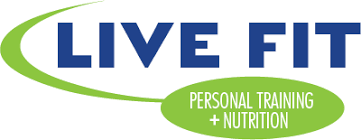Should I Eat Eggs?
Over the past few decades, the public and medical opinion about whether or not consuming eggs will negatively affect your health has gone back and forth enough times to make your head spin. In this article we will break down what some of the most current research shows regarding egg consumption and your health. Here are three reasons you may want to consider adding an egg a day to your diet.
1.Whole eggs are full of nutrients
Eggs are sometimes referred to as “natures multivitamin” because they provide many nutrients and antioxidants that can actually improve your heart and brain health. Eggs contain small amounts of almost every vitamin and mineral that our bodies need. Eggs contain many healthy nutrients: choline, which is extremely important for the brain and nerves; various vitamins (A, B complex, and D), lutein and zeaxanthin which aid eyesight and serve as powerful antioxidants, and many minerals like calcium, iron, zinc, and folate. One large egg also contains about 6 g of high-quality complete protein and only 72 calories.
Keep in mind that essentially all of the nutrients just mentioned are contained in the yolk, whereas the white contains only protein.
The typical American diet typically does not provide the recommended amount of choline, even when combined with supplements, studies show. What’s one of the best sources of choline? You guessed it, whole eggs!
2. But eggs are loaded with cholesterol…
The biggest reason people avoid eggs or have been warned about them is that they do contain higher amounts of cholesterol compared to most other foods. But that’s only scratching the surface when talking about cholesterol. Research has shown that most of the cholesterol in our body is made by our liver – it isn’t coming directly from the foods we eat. According to Harvard Medical, the liver is stimulated to make cholesterol primarily by saturated fat and trans fats, not cholesterol from the foods we eat. One large egg actually contains little saturated fat, about 1.5 grams per egg.
Multiple studies have shown that when consuming an average of around 1 egg per day your cholesterol profile may actually improve your cholesterol profile.
One study revealed that when eating up to three whole eggs per day, combined with a moderate carbohydrate restriction improved insulin resistance, raised HDL (the “good”), and increased the size of LDL (the “bad”) cholesterol in those with metabolic syndrome. On a side note, increasing the size of the LDL particles is linked to lower rates of heart disease.
Multiple other studies have failed to show that daily egg consumption increases the risk of heart disease and cardiovascular disease.
3. Eggs are a great source of high-quality protein
Proteins are the main building blocks of the body and serve both structural and functional purposes. A protein is a group of amino acids linked together, like beads on a string that gets folded into different shapes depending on the function. There are about 20 amino acids that your body uses to build, or “make” its proteins. Nine of these can’t be produced by our bodies and must come from the foods we eat. These are known as essential amino acids. The other 11 our bodies can produce on their own when we eat a balanced diet. These are known as non-essential amino acids.
The quality of a protein source is determined by the amount of the essential amino acids it contains and in what ratio. When a protein source contains all of the required nine and in the right ratios that food is a deemed a “high-quality protein source.” Eggs are amongst the best sources of protein in the diet. When foods are compared based on the quality of protein, eggs are almost always the benchmark because they have the highest biological value (a measure of protein quality).
4. Not all eggs are created equal
Hens are frequently raised in factories, caged closely together, and fed grain-based feed that can alter the nutrients in the eggs we eat. The best way around this is to purchase omega-3 enriched, pastured, or the best source being vegetarian fed eggs. These are much more nutritious and healthier for us. This isn’t to say that conventional eggs aren’t a good choice if you can’t afford or access the other forms, they are still a great addition to the diet.
5. You probably aren’t eating eggs by themselves
Just because eggs have been shown to be beneficial to our health, you can quickly ruin a meal by adding in other sources of fat and calories. The saturated fat in butter, cheese, bacon, sausage, muffins, or scones, for example, raises your blood cholesterol much more than the cholesterol in your egg.
Bottom Line
Eggs are among the most nutritious foods you can eat. They provide virtually all the vitamins and minerals the body needs in varying amounts. They are relatively cheap, easy to cook, versatile, and taste great. Try adding one or two to your breakfast or any other meal today!
